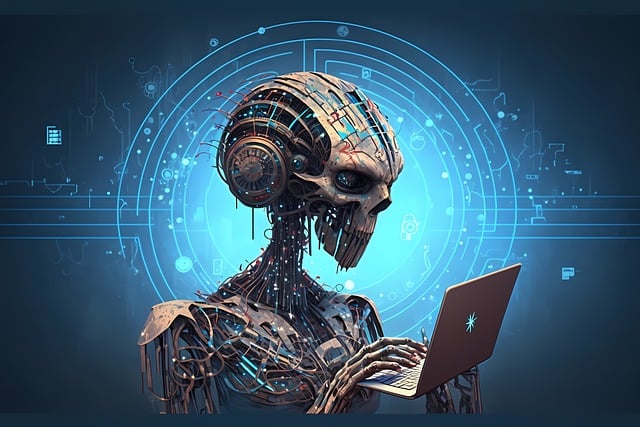Artificial intelligence (AI) and machine learning (ML) are two of the most transformative technologies of our time.
From self-driving cars and virtual personal assistants to image and speech recognition, AI and ML are rapidly changing the way we live and work.
In this blog, we will explore what AI and ML are, how they work, and their applications in various industries.
What is Artificial Intelligence and Machine Learning?
Artificial intelligence refers to the ability of machines to perform tasks that would normally require human intelligence, such as learning, problem-solving, decision-making, and language understanding.
It involves creating intelligent algorithms and software that can learn from data, make predictions, and automate complex processes.
Machine learning is a subset of AI that focuses on building algorithms that can learn from data without being explicitly programmed.
It involves feeding large amounts of data into a computer system and letting it learn and improve on its own.
How Does Machine Learning Work?
Machine learning algorithms use statistical models to analyze and learn from data.
The process involves the following steps:
- Data Collection: The first step is to collect relevant data for the machine learning algorithm.
- Data Preprocessing: The collected data needs to be cleaned, formatted, and preprocessed to ensure that it is suitable for the machine learning algorithm.
- Training Data: The preprocessed data is divided into two sets – training data and testing data. The training data is used to teach the machine learning algorithm how to make predictions.
- Model Building: The machine learning algorithm builds a model based on the training data.
- Testing: The model is tested on the testing data to evaluate its accuracy and performance.
- Deployment: Once the model is trained and tested, it can be deployed to make predictions on new data.
Applications of AI and ML
AI and ML are being applied in various industries to improve efficiency, accuracy, and decision-making.
Some of the popular applications of AI and ML include:
- Healthcare: AI and ML are being used to diagnose diseases, develop personalized treatment plans, and improve patient outcomes.
- Retail: AI and ML are being used to analyze customer data, personalize shopping experiences, and optimize supply chain management.
- Finance: AI and ML are being used to detect fraud, automate risk management, and improve investment decisions.
- Education: AI and ML are being used to personalize learning experiences, automate grading, and improve student outcomes.
- Manufacturing: AI and ML are being used to optimize production processes, predict maintenance needs, and improve product quality.
Challenges and Opportunities in AI and ML
While AI and ML have great potential to transform industries, they also come with their own set of challenges.
Some of the key challenges include:
- Data Bias: Machine learning algorithms are only as good as the data they are trained on. If the data is biased or incomplete, it can lead to inaccurate predictions and decisions.
- Privacy and Security: With the increasing amount of data being collected and analyzed, there is a risk of data breaches and privacy violations.
- Ethics: AI and ML raise ethical concerns around job displacement, decision-making, and accountability.
- Skill Gap: There is a shortage of skilled professionals who can design, develop, and deploy AI and ML systems.
Despite these challenges, AI and ML present numerous opportunities for businesses and individuals.
Some of the key opportunities include:
- Automation: AI and ML can automate repetitive and mundane tasks, allowing humans to focus on more creative and strategic work.
- Personalization: AI and ML can personalize products and services to meet individual customer needs and preferences.
- Optimization: AI and ML can optimize processes and systems to improve efficiency, reduce costs, and increase productivity.
- Innovation: AI and ML can spur innovation and create new business models and opportunities.
In conclusion
Artificial intelligence and machine learning are powerful technologies that have the potential to transform the way we live and work.
From healthcare and retail to finance and education, AI and ML are being applied in various industries to improve efficiency, accuracy, and decision-making.
However, they also come with their own set of challenges, including data bias, privacy and security, ethics, and the skill gap.
Despite these challenges, AI and ML present numerous opportunities for businesses and individuals, including automation, personalization, optimization, and innovation.
As the field of AI and ML continues to evolve, it is important for individuals and businesses to stay up-to-date on the latest developments and best practices.
This can be done through education and training programs, attending industry events and conferences, and collaborating with experts in the field.
By embracing AI and ML and leveraging their potential, we can create a more efficient, productive, and innovative future for ourselves and for society as a whole.
